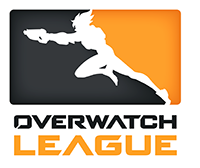Next week the second season of the Overwatch League (OWL) is set to begin. Blizzard Entertainment’s 2016 team shooter Overwatch made waves when it was first released, combining dynamic heroes associated with Massive Online Battle Arena (MOBA) games like League of Legends with precise gunplay and movement, alongside rich science fiction world-building.
Altough there were several esport tournaments run for Overwatch, they were superseded by the Overwatch League in winter 2018. The first esports competition modeled after western sports leagues last season was the OWL’s inaugural one. As a result of its rousing success, eight new expansion teams have been added to the original grouping of twelve, with ESPN reporting the buy-ins to be between 30 and 60 million dollars (the buy-in for the original teams was 20 million).
Teams have a variety of owners, from established esports organizations, corporate backers and traditional sports organizations. Of the expansion teams, the Paris Eternal joins the London Spitfire as the second European representative, a much requested option.
Three new teams hail from China: Chengdu Hunters, Guangzhou Charge and Hangzhou Spark. Canada gained the Vancouver Titans and the Toronto Defiant, and America’s landscape was rounded out with the Washington Justice and the Atlanta Reign. The twelve founding teams have not been without their offseason drama; a handful of high profile trades and transfers coupled with releasing underperforming players (or in the case of the 0-40 Shanghai Dragons, the bulk of their roster). The new blood has either come from Overwatch Contenders, a sort of minor league, or from older now-defunct teams from the pre-OWL era.
Additionally, some players were plucked right off the competitive ladder played by millions of people. The league’s reigning MVP, Sung-hyeon “JJonak” Bang, was one such player; he had not played professionally before starting in the Overwatch League.
The new season maintains its Thursday-through-Sunday schedule, but with four matches per day instead of three to accommodate the increased number of teams. The season also continues its four-stage structure, with a stage taking about a month followed by a stage finals, followed by a playoff tournament after the fourth stage. Most matches are still played at the Blizzard Arena in Burbank, California, but a handful of “homestands” hosted by individual teams at rented arenas in their respective cities have been scheduled. Teams plan to have permanent home arenas for the 2020 season.
The streaming service Twitch is still the primary method of viewing the matches themselves, which are broken down into four individual games that are used to tally points towards a season total.
Opening night, Feb. 14, sees the defending champion London Spitfire primed for a rematch of last season’s finals with the Philadelphia Fusion.
Other matches for that night include the Boston Uprising, weakened after losing star DPS player Nam-Ju “Striker” Gwon to the San Fransico Shock, facing the New York Excelsior, who held the best record of the inaugural season.
The Los Angeles Gladiators are up against the Seoul Dynasty, and the Hangzhou Spark make their debut against the Shanghai Dragons.



